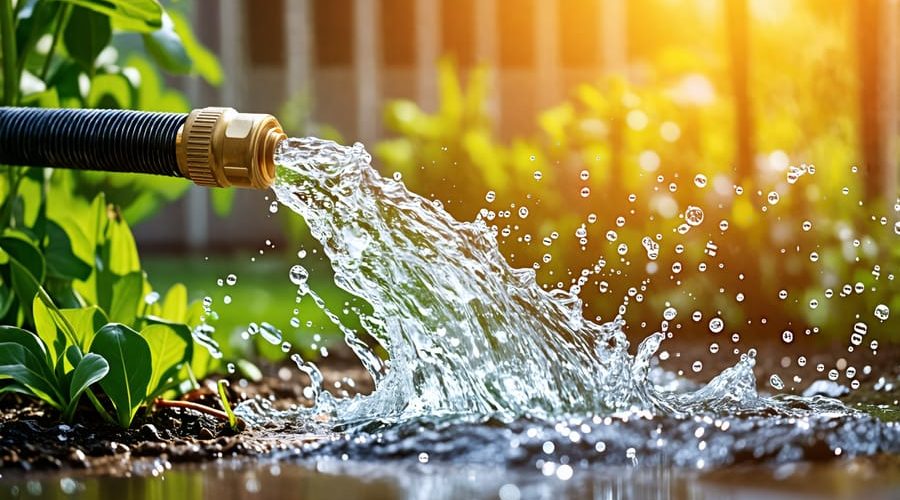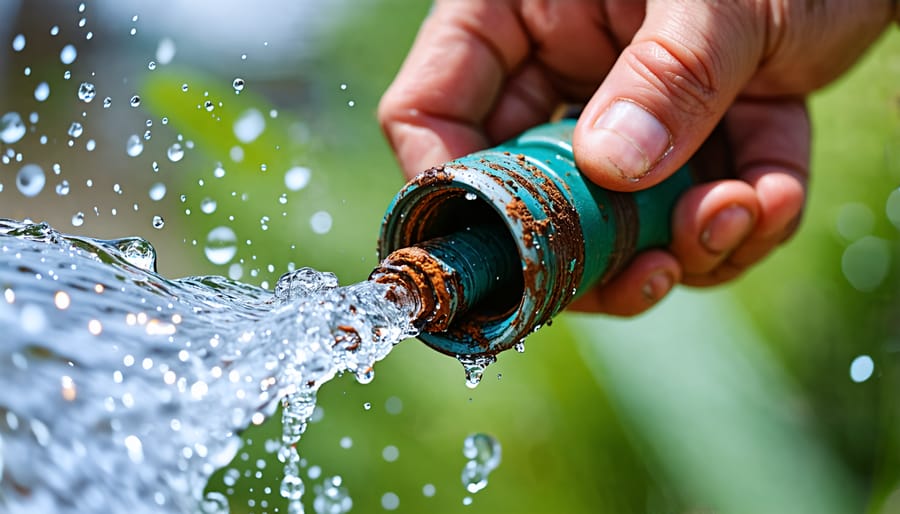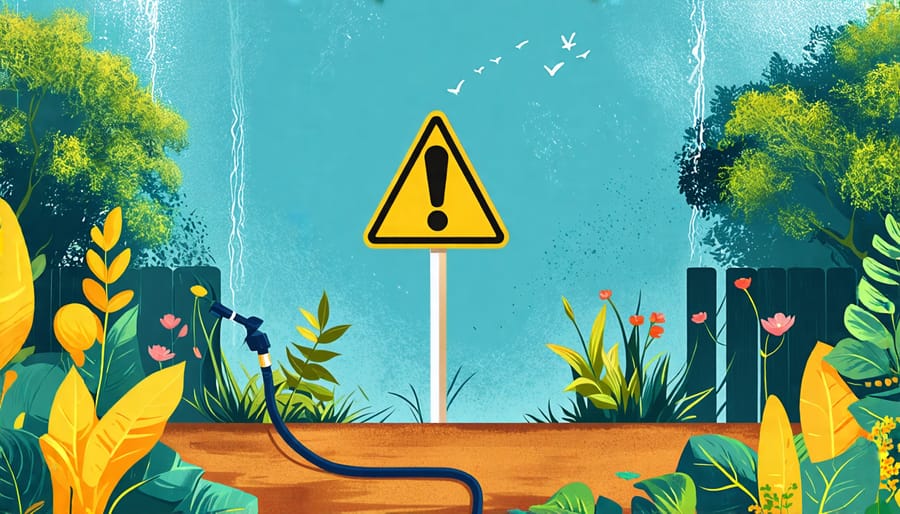
Is Your Garden Hose Secretly Poisoning You? The Truth Revealed
Is your garden hose safe for drinking water? Many assume it’s a convenient way to quench their thirst while working outdoors. However, hose water can harbor hidden dangers that put your health at risk. From toxic chemicals leaching out of the hose material to bacteria buildup, a sip from the hose may expose you to serious contaminants. In this article, we’ll explore the potential hazards lurking in your garden hose and provide clear guidance on when hose water is safe to drink and when to find a better source to protect your wellbeing. Don’t take chances with what you put in your body – get the facts before you drink.

What’s Lurking in Your Garden Hose?
The Danger of Lead
Lead can pose a significant health risk if it leaches from garden hoses into drinking water. Older hoses manufactured before 2007 are more likely to contain lead, as they were produced before stricter regulations were put in place. As water sits in these hoses, especially in warm temperatures, lead can dissolve and contaminate the water. Exposure to lead is particularly dangerous for children, as it can lead to developmental delays, learning difficulties, and behavioral problems. In adults, lead exposure can cause kidney damage, high blood pressure, and reproductive issues. To minimize the risk of lead exposure, it’s important to let the water run for a few seconds before drinking from a hose and to avoid drinking from hoses that have been sitting in the sun. If you’re unsure about the safety of your garden hose, consider having your water tested for lead or using a lead-free hose designated for drinking water.
BPA and Phthalates: The Plastic Problem
Many garden hoses are made from plastics like PVC that contain chemicals such as BPA (bisphenol A) and phthalates. These chemicals can leach into the water, especially when the hose is exposed to heat from the sun. BPA is an endocrine disruptor that mimics estrogen and has been linked to various health issues, including developmental problems in children, reproductive disorders, and certain cancers. Phthalates, used to make plastics more flexible, are also endocrine disruptors and have been associated with hormonal changes, birth defects, and developmental disorders. While the levels of these chemicals in hose water may be low, long-term exposure could potentially lead to adverse health effects, particularly in children and pregnant women. To minimize the risk, it’s best to avoid drinking from garden hoses and opt for safer alternatives like NSF-certified hoses or filling containers from indoor faucets.
Is Any Garden Hose Safe to Drink From?

What to Look for in a Drinking Water Safe Hose
When shopping for a drinking water safe hose, look for products certified by NSF International or the FDA as meeting standards for potable water. These hoses are often labeled as “drinking water safe,” “potable water,” or “food-grade.” Check that the hose is made from materials like polyurethane or medical-grade PVC, which are non-toxic and won’t leach chemicals into the water. Avoid hoses made from recycled materials or those containing lead, BPA, or phthalates. Drinking water safe hoses typically have a distinctive blue or white color to differentiate them from regular garden hoses. Investing in a high-quality drinking water safe hose ensures that you and your family can safely enjoy clean, fresh water from your outdoor faucet or while camping and RVing.
Proper Care and Maintenance
To keep your drinking water safe hose in top condition, flush it thoroughly with clean water before each use, especially if it’s been sitting for a while. After use, drain the hose completely and store it in a cool, dry place out of direct sunlight. Avoid leaving your hose submerged in standing water, as this can lead to bacterial growth. Inspect your hose regularly for cracks, leaks, or other damage, and replace it immediately if you notice any issues. With proper care, a high-quality drinking water safe hose can last for several seasons, ensuring you always have access to clean, safe water outdoors.
Safer Alternatives to Drinking from the Hose
While drinking from the garden hose may be tempting on a hot day, there are safer alternatives for staying hydrated outdoors. One simple solution is to bring a reusable water bottle filled with clean, fresh water from inside your home. This ensures you have a safe and convenient source of hydration while working or playing in the yard. If you frequently spend time outside, consider installing an outdoor drinking water faucet specifically designed for human consumption. These faucets connect to your home’s main water supply and provide a reliable source of clean water. For those with RVs or boats, using a dedicated RV/marine hose is another option. These hoses are made from food-grade materials and are safe for drinking water. They often have a distinct color or labeling to differentiate them from regular garden hoses. By choosing one of these hydration methods, you can enjoy the outdoors without compromising your health and well-being. Remember, staying hydrated is essential, especially during hot weather or when engaging in physical activities, so always prioritize access to clean, safe drinking water.
When to Seek Help
If you suspect your garden hose water may be contaminated, it’s crucial to seek help from your local water authority. They can provide guidance on how to properly test your hose water and determine if it’s safe for drinking. Look for signs such as an unusual odor, color, or taste in the water, which may indicate the presence of harmful substances. You can also purchase water testing kits from home improvement stores or online retailers to check for contaminants yourself. These kits typically test for common substances like lead, chlorine, bacteria, and pesticides. If the tests reveal any issues, contact your water authority immediately for further assistance. They can help identify the source of the problem and provide recommendations on how to address it, ensuring your hose water is safe for all your outdoor needs.
Conclusion
In conclusion, while it may be tempting to take a sip from your garden hose on a hot day, it’s crucial to understand the potential risks involved. Garden hoses can contain harmful chemicals like lead, BPA, and phthalates that can leach into the water, posing health hazards. Additionally, stagnant water in hoses can harbor bacteria and other microorganisms that can cause illness. To ensure your safety, always use drinking water safe hoses labeled “lead-free” and “drinking water safe,” or stick to alternative hydration methods like bringing a water bottle from inside your home. If you suspect your hose water has made you sick, don’t hesitate to seek medical attention. By being informed and proactive about the water you consume, you can stay hydrated and healthy while enjoying your outdoor spaces.
